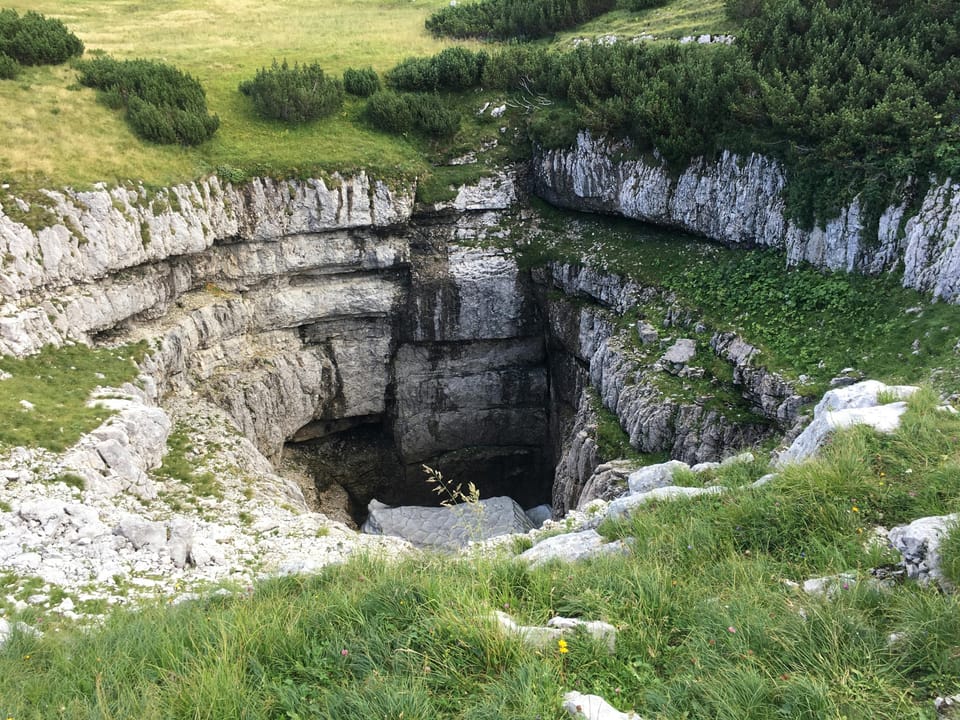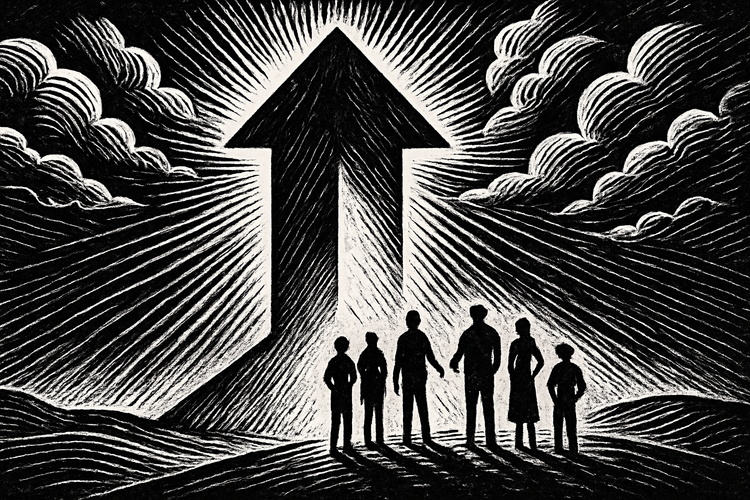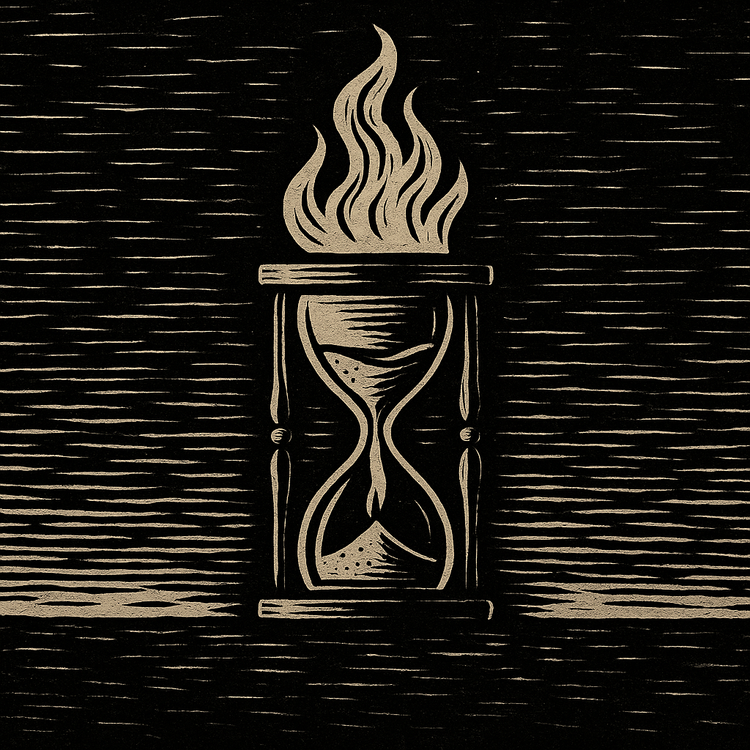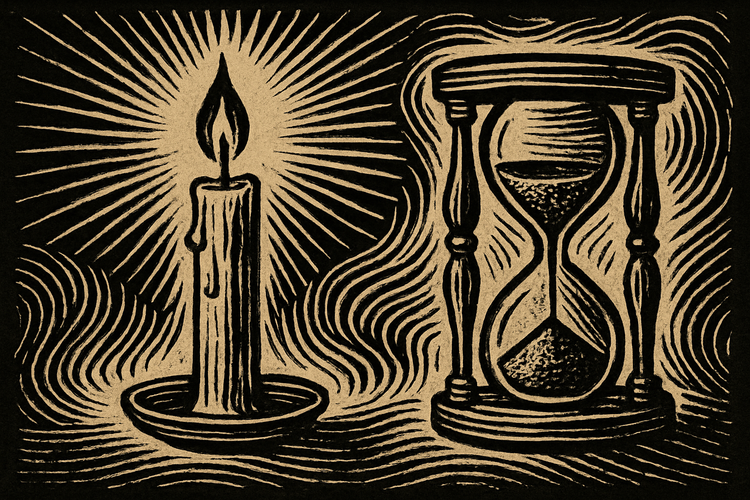The Good Place S1E4 - “Jason Mendoza”

Spoiler Warning: This reflection contains full spoilers for The Good Place, including retrospective insights and thematic allusions. It assumes familiarity with the entire series and is written from the perspective of a rewatch.
At first glance, the growing sinkhole in “Jason Mendoza” appears to be a simple cause-and-effect punishment: Eleanor lies and smashes a cake to protect Jason, and the neighborhood reacts with instability. Michael even says the sinkhole should self-heal in a few days, as if the system is neatly responsive to moral missteps. But it doesn’t heal—it grows. And that escalation reveals a deeper paradox. On a rewatch, it becomes clear that Eleanor, Jason, and Chidi aren’t just continuing to lie—they’re starting, however clumsily, to grow. Eleanor chooses to protect Jason not just out of fear, but out of nascent care. Chidi keeps teaching, even as the chaos exhausts him. Jason begins to integrate, however bizarrely. They’re not becoming worse—they’re starting to become better. So why is the neighborhood unraveling faster? The answer only emerges with hindsight: the sinkhole may be reacting not just to moral failure, but to moral possibility. If this is really the Bad Place—as we later learn—then growth itself is the threat. And yet the same sinkhole also deepens Tahani’s torment, destabilizing her sense of control. It’s punishment, yes—but also resistance, and also design. That’s the tension: the neighborhood punishes them because they’re lying, because they might improve, and because it wants everyone to suffer. The sinkhole doesn’t mean just one thing—it holds the contradiction. And that contradiction is the show’s real starting point.
The Jason reveal blows open the structure of the show. For three episodes, we’ve watched Eleanor struggle alone with the knowledge that she doesn’t belong. But now we learn that Jianyu, the silent monk, is also a fraud—and not a subtle one. Jason Mendoza is an amateur DJ from Jacksonville, a failed pre-success story with a heart full of fireworks and a head empty of consequences. He is, as the show frames it, dumb but weirdly pure. Unlike Eleanor, he doesn’t wrestle with guilt or identity. He thinks he’s in an alien zoo or a prank show. He’s not lying; he’s just confused. The moral tension doesn’t live inside him—it lives inside Eleanor, who suddenly finds herself responsible for keeping two people’s secrets instead of one.
And that’s what makes her next move so pivotal. She chooses not to turn him in—not just to protect herself, but to protect him. Her motivation is still tangled with fear, but something else is starting to form around it. Obligation. Care. Solidarity. It’s not selfless, and it’s not heroic, but it marks the beginning of Eleanor’s shift from isolation to entanglement. She throws herself into chaos not just to survive, but to keep someone else from being destroyed. That’s a different kind of mistake—and a different kind of progress.
There’s a moment near the episode’s emotional peak where Jason says to Eleanor, bluntly: “You suck.” And instead of arguing, she just says, “I know.” But it doesn’t stop there. She spirals—blurting out a breathless string of praise for Chidi, for his ethics, for his brain, for how great a teacher he is. It’s a rambling, defensive, desperate plea—directed at Jason, but rooted in something much deeper. Eleanor is scared of losing her chance to get better, and her panic makes her say the quiet part out loud: that Chidi matters to her. That this process matters. That maybe she’s started to care. And that’s the thing—her default behavior is changing, even if her motivation hasn’t. She’s still acting out of self-preservation, but self-preservation now includes other people. She’s not lying to escape anymore—she’s telling the truth in hopes of reaching someone.
Meanwhile, Tahani continues to operate in her carefully curated bubble of helpfulness. She isn’t aware of the hidden deceptions unfolding around her, but she’s still rattled by the disruptions in the neighborhood. She’s putting up cheerful signs for the reopening of The Good Plates, performing kindness with visible pride, when she notices something unsettling: the sinkhole hasn’t healed. It’s grown. And for someone like Tahani, that isn’t just an environmental issue—it’s a symbolic one. She wants things to be lovely, to be ordered, to reflect well on her. The crack in the earth is a crack in her control. And because she doesn’t yet understand the true cause, she responds by redoubling her effort to fix things—not by interrogating the system, but by reinforcing her role as the benevolent center of it. Her helpfulness, like her goodness, is performative—but the ground doesn’t care.
So the sinkhole remains: unexplained, unresolved, expanding. It began with a lie, but it persists in response to something harder to pin down. In that way, it works like a moral pressure gauge—reacting not just to misbehavior, but to dissonance. To confusion. To change. On a first watch, it seems like a quirky punishment. But on rewatch, it’s something closer to a warning: not everything in this world wants them to get better. And the moment they begin to try, the ground starts to give way.



Comments ()